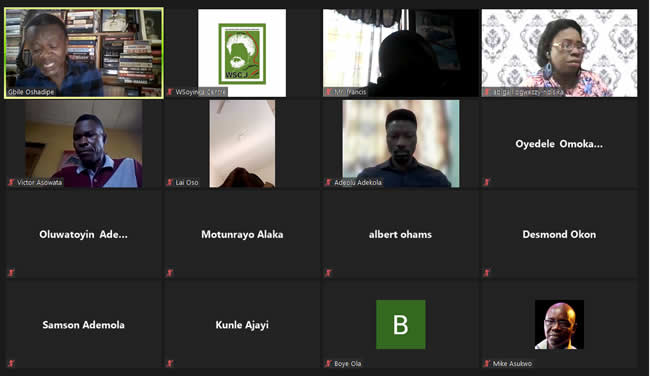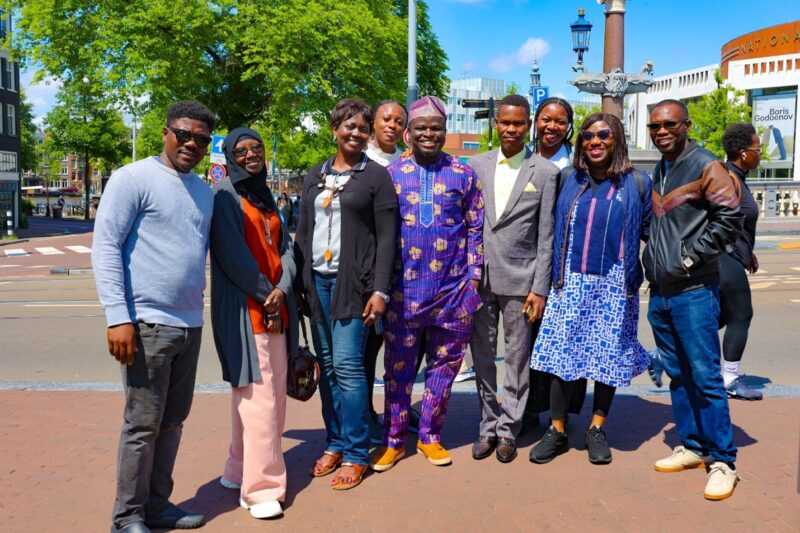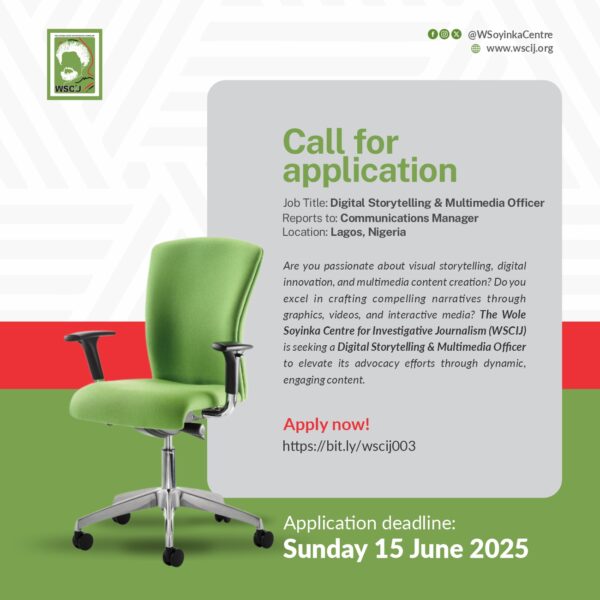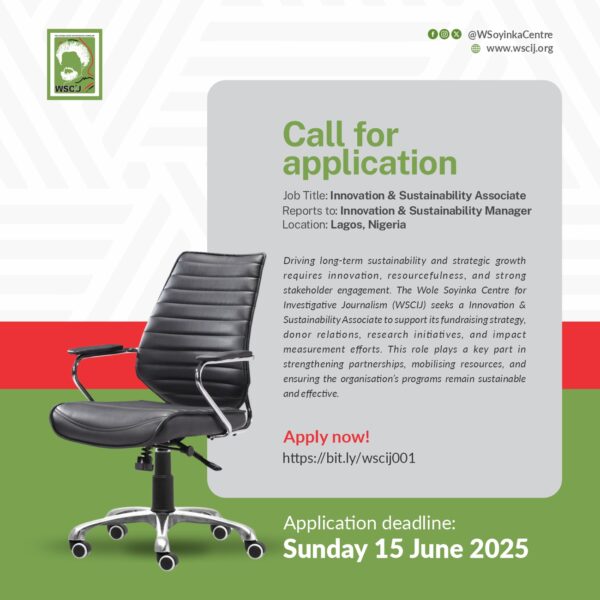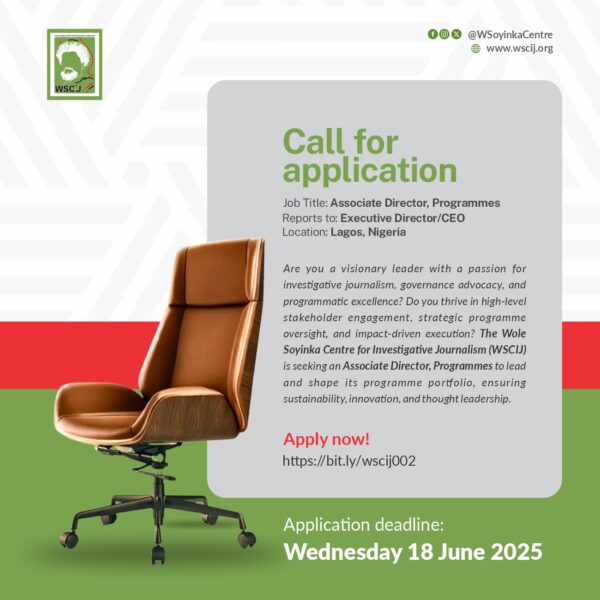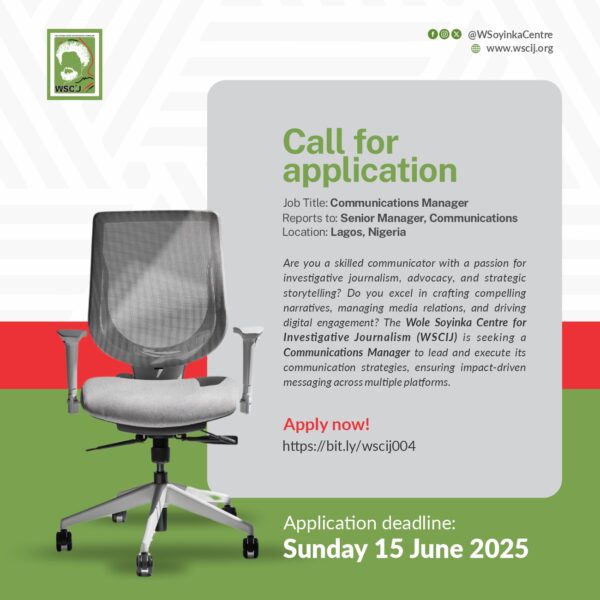Participants at a one-day visual storytelling immersion training for cartoonists and photojournalists organised virtually by the Wole Soyinka Centre for Investigative Journalism (WSCIJ) under its ‘Free to share’ initiative on Wednesday, 14th April 2021 have been charged to chronicle events around COVID-19 through visual storytelling and also to break free from event-based reporting of the issues by exploring areas that have not been covered in COVID-19 reporting.
Motunrayo Alaka, Executive Director/CEO, WSCIJ stated that the organisation understands the power of images and cartoons and was organising the training to help participants better understand the issues and broaden the scope of storytelling through cartoons and photos, with focus on COVID-19. According to her, the centre started its response on COVID-19 a year ago.
Alaka observed that the training commenced a six-week exposure which entails mentorship of reporters through regular engagement with their mentors and the publication of cartoons or photo stories by the participants.
Taking one of the case studies session, ‘How to tell stories through cartoons in a pandemic’, Boye Ola, Head of Department, General Studies, Nigerian Institute of Journalism and one of the mentors, observed that cartoons must be comprehensible and knowledge-based.
“A cartoon is nothing until it is illustrated in a way that it can be comprehended. Research is important; cartoons must come from the point of knowledge that is verifiable and incontrovertible. Wit, sarcasm and humour must also be infused in the cartoons,” he said.
In his session on how to tell stories through photos in a pandemic, Gbile Oshadipe, Executive Director, Picture Perfect and mentor, spoke to the need to document the pandemic in history by telling compelling stories to raise consciousness, contribute to social and political commentary for change on the part of the government and the people.
“There is need to document the present for posterity. This does not have to be just taking pictures, but taking pictures from other angles. It does not have to be sophisticated. It can be about a day in the life of a girl during the pandemic or how average Nigerians are coping with the pandemic,” he stated.
On his part, Lai Oso, Professor at the School of Communication, Lagos State University, noted that the messaging of cartoons or photographs is to influence attitude and behavioural changes during the pandemic. He also urged the photojournalists to take photos of their subjects in a way that protects their identity, privacy and dignity.
“We must be able to capture the inner essence of what is going on in our environment to make impact. In doing this, you should take the photos of your subjects in a way that protect their identity, privacy and dignity,” he asserted.
Abigail Ogwezzy-Ndisika, Professor at the Department of Mass Communication, University of Lagos, observed during her session, ‘Explore uncharted territories: COVID-19 visual realities’, that many of the event-based photos published about the coronavirus can be misconstrued for publicity. She then recommended the need to explore the issues of water and sanitation, health care access, education access, food security, and effectiveness of the lockdown, as well as the gender dimension to COVID-19, that draw the attention of political office holders and other duty bearers to the vulnerabilities women and girls suffer aimed at preventing and mitigating them.
The training coordinated by Adeolu Adekola, Senior Programme Officer, WSCIJ, also involved a breakout session with mentors to discuss their story ideas and get feedback on them towards improved reporting.
Free to share is WSCIJ’s initiative geared at broadening the scope of freedom of expression through engagements on media ethics and accountability journalism. This pilot of the project interrogates the intersection between COVID-19, access to information and misinformation by publishing data-driven, human interest investigative stories that will support the media to better provide access to information that informs, educates, and debunks misinformation about the coronavirus pandemic and its multifaceted impact on lives and livelihoods. It is implemented with support from the Free Press Unlimited (FPU) as part of the ‘COVID-19 response in Africa: Together for reliable information project’, funded by the European Union (EU).

